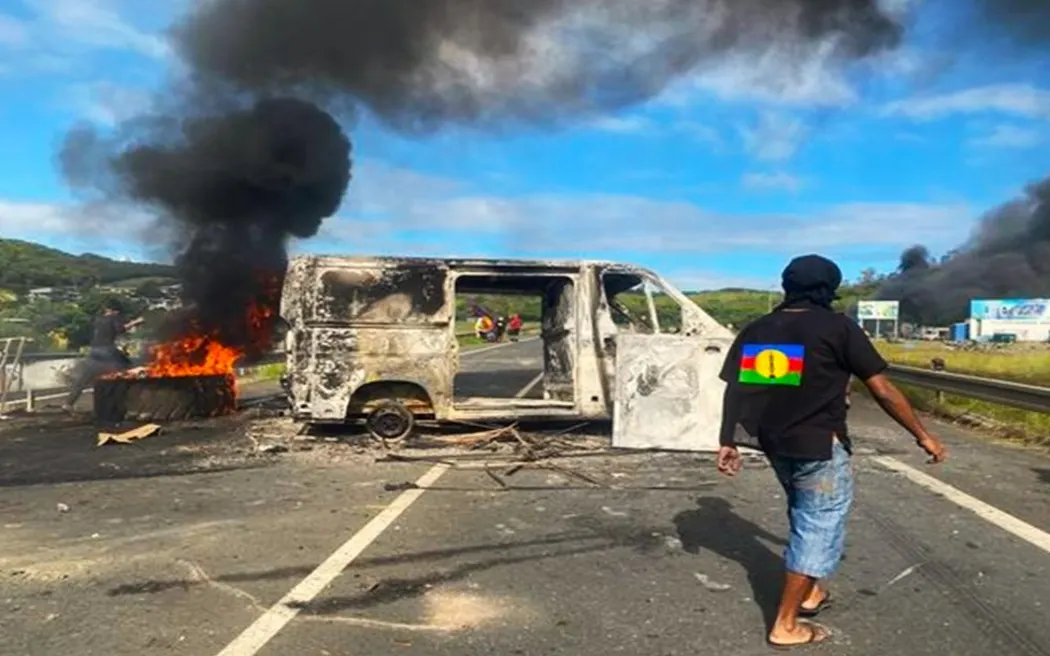A group belonging to New Caledonia’s pro-independence movement, UNI (Union Nationale pour l’Indépendance), has released a communiqué saying they were “moved by and deplored the exactions and violence taking place”.
UNI member of New Caledonia’s Northern provincial assembly, Patricia Goa, said the violent unrest “affects the whole of our population”.
She said it was “necessary to preserve all that we have built together for over thirty years” and that the priority was “to preserve peace, social cohesion”.
New Caledonia’s President, pro-independence leader Louis Mapou, in a news release from his “collegial” government, appealed for “calm, peace, stability and reason” which, he said, “must remain our goals” in the face of “those events that can only show the persistence of profound fractures and misunderstandings”
He called on all components of New Caledonia’s society to “use every way and means to bring back reason and calm”
“Every explanation for these frustrations – anger cannot justify harming or destroying public property, production tools, all of which this country has taken decades to build,” he said, strongly condemning such actions.
In a reference to current debates in the Paris National Assembly on changing the French Constitution – to allow more voters at New Caledonia’s local provincial elections – Mapou also appealed to French President Emmanuel Macron, to “bear in mind” that at all times, the priority must remain for a comprehensive agreement to be struck between all political leaders of New Caledonia, to pave the way for the archipelago’s long-term political future.
This accord has not taken place and Macron, at the weekend, invited all New Caledonia’s leaders to re-start discussions in Paris.
Back in Paris, debates resumed on Tuesday evening (Paris time) in Parliament, but a vote on a French government-proposed Constitutional change to modify the conditions of eligibility is likely to be delayed and could only take place later this week, in the face of a barrage of amendments filed by the opposition.
Those left-wing MPs are supporting New Caledonia’s pro-independence movement in their struggle against a text they believe would seriously affect their political representativity.
The constitutional change is regarded as the main cause of New Caledonia’s current unrest.
Meanwhile, New Zealand Foreign Minister Winston Peters, is this week heading a political delegation in several Pacific island countries and territories, including Solomon Islands, Papua New Guinea, Vanuatu, and Tuvalu.
However, the New Caledonian leg of the tour was officially cancelled and will be rescheduled to another date.
As part of the official travel programme, the delegation was to “meet with government, political and cultural leaders, visit New Zealand-supported development initiatives and participate in community activities”.













